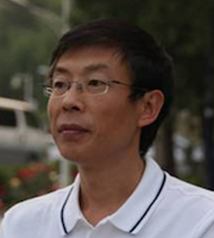resume
-
-
di zengru

degree:ph.d.
title:professor
address: science & tech. building 603(b), beijing normal university
zip code: 100875
telephone: 86 10 58807060
email:zdi@bnu.edu.cn
homepage:
educational experiences:
1991-1997 ph.d., department of physics, bnu
1985-1988 master, department of physics, bnu
1979-1983 bachelor, department of physics, bnu
1985-1988 master, department of physics, bnu
1979-1983 bachelor, department of physics, bnu
work experience:
2002- doctoral supervisor, school of systems science, bnu
2002- professor, school of systems science, bnu
2000-2001 visiting scholar, medical school, ucla
1996-2000 associate professor, department of physics, bnu
1995-1996 visiting scholar, free university brussels
1988-1995 lecturer, department of physics, bnu
2002- professor, school of systems science, bnu
2000-2001 visiting scholar, medical school, ucla
1996-2000 associate professor, department of physics, bnu
1995-1996 visiting scholar, free university brussels
1988-1995 lecturer, department of physics, bnu
research interests:
di zengru mainly studies non-equilibrium system theory, complexity, and also the application of related theory in social economy and biosystem. di made some achievements in the bistability of increasing return and economic growth, the mechanical description of social division of labor, the structure, evolution and function of weighted complex network. at present, di is focusing on complexity study, especially the relation between the local interaction of individuals and the macro complex behavior. his specific research direction includes complex network, collective behavior of multi-agent system, emergence of organization and structure in economic and biological systems, etc.
professional affiliations:
in december 2006, di was nominated as the executive member of complex system research council of pmrc. in october 2003, di was nominated as the secretary general of the physics group of commission of teaching instruction of national higher education self-taught examination.
teaching:
undergraduate courses: mathematical modeling, general physics
postgraduate courses: non-linear dynamics, self-organization theory


